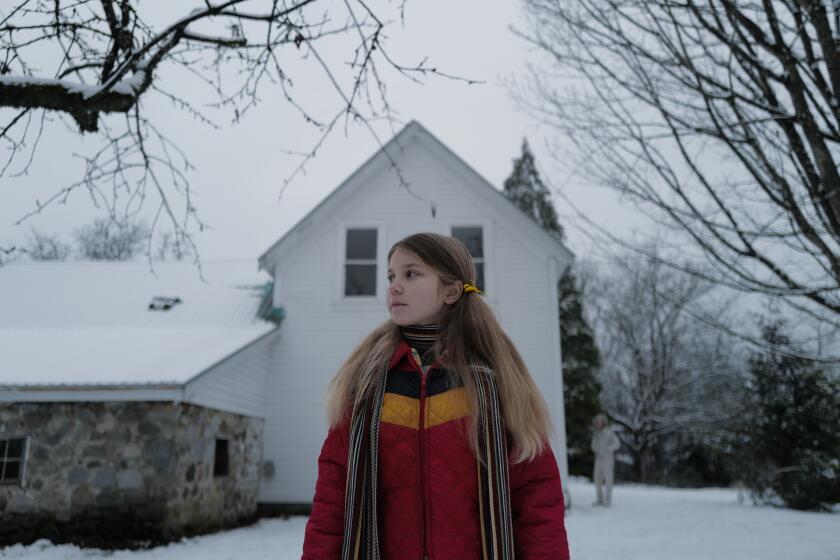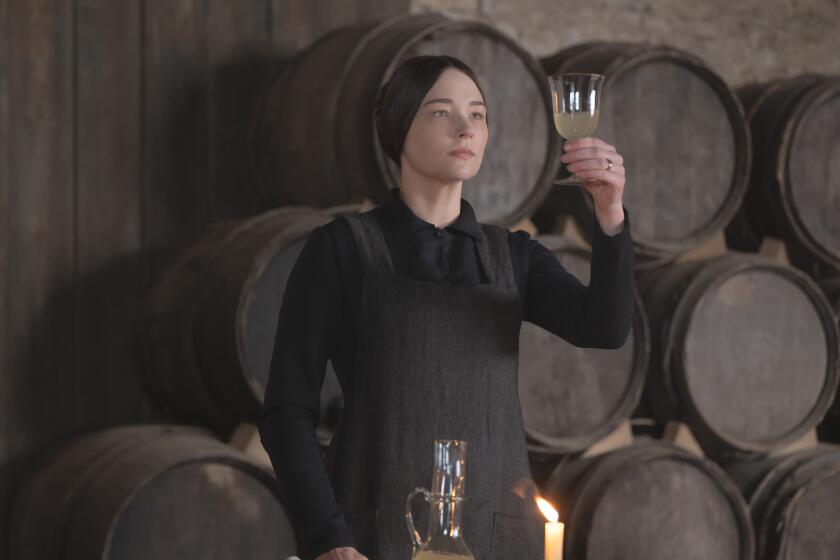Music Review : ‘South Bank Show’ Profiles a Candid Tenorissimo at 60
Life begins at 60. Or so Luciano Pavarotti and his hyperactive hype corps would have us believe.
Everybody’s favorite tenorissimo was born in picturesque Modena, Italy, on Oct. 12, 1935. Contemplating the milestone of maturity, Pavarotti has been a very busy divo this season.
He has written the second installment of his memoirs, an engagingly superficial as-told-to volume entitled “My World” (Crown: $25). He has announced a new round of international three-way concerts in conjunction with his bosom buddies Placido and Jose.
He has endured the slings and arrows of a New York magazine piece aimed at his longtime super-promoter, Herbert Breslin. He has courted danger and tempted the cruel fates by attempting a return to “La Fille du Regiment” at the Metropolitan Opera, nine notorious high C s and all (more on that unhappy subject later).
He also has participated in a number of television projects devoted to enlightening the masses on the care and feeding of the big guy with the big voice, big grin, big bank account and big white tablecloth. Bravo weighs in with a British “South Bank Show” this afternoon at 4 (to be repeated Sunday at 9 a.m.). PBS follows suit with a “My World” extravaganza of its own on Dec. 4.
In the Bravo documentary, Pavarotti holds court at his summer home on the Adriatic coast. He demonstrates considerable wit and charm--and some candor, too--in an interview with Melvyn Bragg (who seems to know a fair amount about opera, even if he can’t pronounce “Celeste Aida”).
Pavarotti chats sympathetically about his wartime childhood in an Italy dominated by “the Deutsch .” He answers technical questions about the vocal apparatus, and comes up with an interesting observation regarding the muscular connection between “going to the bathroom” and “commanding the diaphragm.” He generously rattles off the names of other excellent tenors, and admits that he had to fight his way to the top.
*
He dishes out some beguiling hyperbole. “The voice of the tenor,” he says, “is a wild animal.” He also admits to suffering terrible nervous tension prior to curtain time.
Between revelations, the producers offer some travelogue diversions, newsreel footage from Mussolini’s Italy, and concert and opera clips from the vaults. All this in a well-packed hour, and recollections from Pavarotti’s parents and his first teacher, too.
Although our hero made his Met debut in 1968, he didn’t really flirt with universal adulation until 1972. That was when he sang “La Fille du Regiment,” tossing off the top Cs of “Ah, Mes Amis” with abandon and relish that took away everyone’s breath but his.
Contrary to popular opinion, Pavarotti was neither the first nor the last “wild animal” to dare explore the Donizetti stratosphere. Cesare Valletti did it elegantly before him, and, at 56, Alfredo Kraus did it brilliantly after him.
In the television interview, filmed some months ago, Pavarotti registered trepidation about returning to a high-wire challenge that he had avoided for nearly 23 years. “Maybe,” he shrugged, “I will make a massacre.”
Fatal words. During rehearsals, he decided to transpose the aria down a half tone, moving the crest to a still-treacherous high B . There is nothing shameful in that. Unfortunately, even the Bs turned out to be problematic at the opening performance. At the second, Pavarotti cracked on the first and omitted the subsequent eight. Then he went home, citing phlegm on the vocal cords and leaving the second act to an understudy (who took over the entire third performance).
Many famous tenors have no C at all. The silly note never came easy to Enrico Caruso, Tito Schipa, Richard Tauber, Richard Tucker or even Placido Domingo. But these paragons weren’t habitually heralded as pirates of the high Cs . Voices tend to become deeper and darker with age, and Pavarotti can still sing beautifully. Perhaps he simply should have left high enough alone.
He also might have been well advised to avoid certain dramatic challenges that strain his essentially lyric resources. A case in point is “Il Trovatore.” As a lengthy encore to the documentary, Bravo offers a generally unfortunate performance of Verdi’s masterpiece filmed at the Met in 1988.
The tenorissimo makes no massacre. Still, “Boheme” would have been better.
More to Read
The biggest entertainment stories
Get our big stories about Hollywood, film, television, music, arts, culture and more right in your inbox as soon as they publish.
You may occasionally receive promotional content from the Los Angeles Times.






